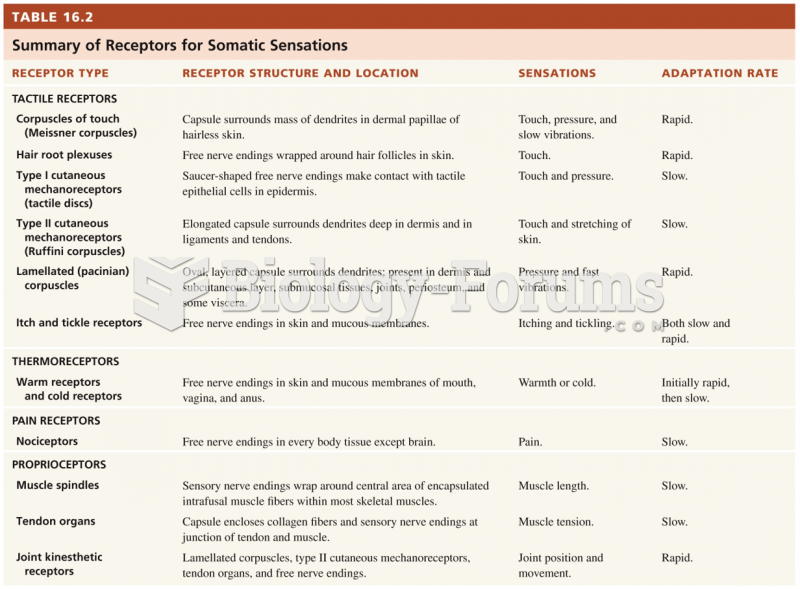|
|
|
The first successful kidney transplant was performed in 1954 and occurred in Boston. A kidney from an identical twin was transplanted into his dying brother's body and was not rejected because it did not appear foreign to his body.
The most common treatment options for addiction include psychotherapy, support groups, and individual counseling.
For about 100 years, scientists thought that peptic ulcers were caused by stress, spicy food, and alcohol. Later, researchers added stomach acid to the list of causes and began treating ulcers with antacids. Now it is known that peptic ulcers are predominantly caused by Helicobacter pylori, a spiral-shaped bacterium that normally exist in the stomach.
It is difficult to obtain enough calcium without consuming milk or other dairy foods.
In most cases, kidneys can recover from almost complete loss of function, such as in acute kidney (renal) failure.







